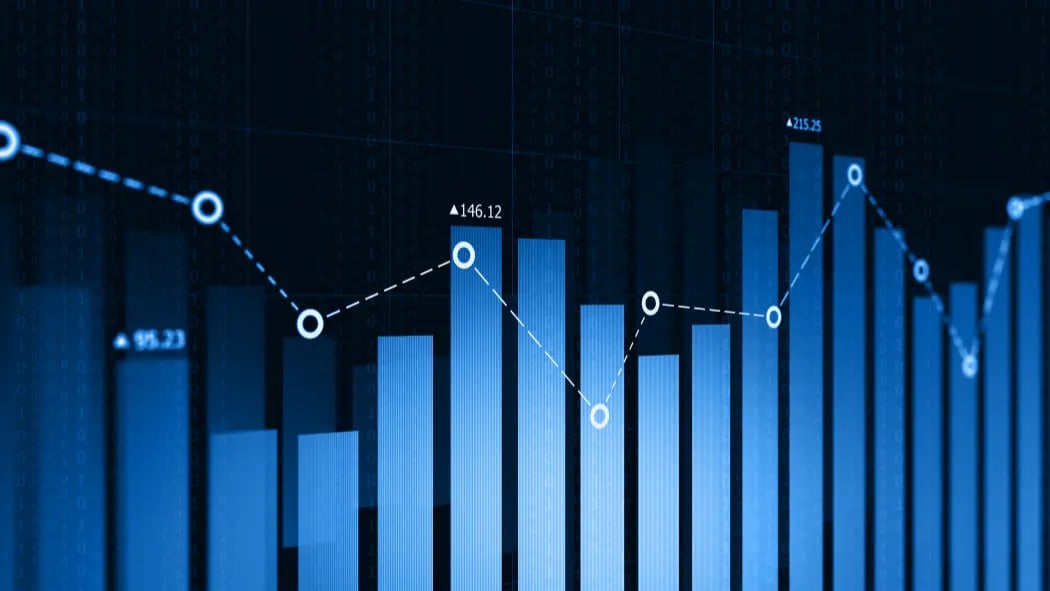According to Glassdoor, the average data scientist salary in the UK is £52,782, while the average data analyst salary is £36,108, 46% less.
What explains the difference in salary?
While both roles require similar skills, there are some key differences that often make data scientists more valuable to their organisations. And the good news, if you’re currently a data analyst, is that your role is the perfect starting point to upskilling into becoming a data scientist.
So how do you take that next step in your data career and personal development to upskill into a data scientist role?
Keep reading our guide to find out what you can expect on the journey to becoming a data scientist in the UK.
Firstly let’s explore the responsibilities of each role.
The role of a data analyst
Essentially, the role of a data analyst is to analyse the current data of an organisation and use that data to support current business needs.
Let's take a look at the key responsibilities and skills needed to be a successful data analyst.
Key responsibilities:
- Data collection and analysis: Analysts meticulously collect and scrutinise data, turning raw numbers into actionable insights to address current business needs.
- Data cleaning and validation: Analysts often clean and validate data to ensure accuracy and reliability.
- Report and visualisation preparation: They prepare clear and concise reports, often with visualisations and dashboards, making data understandable and accessible to stakeholders at all levels.
Key technical skills:
- Proficiency in programming languages: Knowledge of programming languages like SQL for database management, and Python or R for data analysis and manipulation.
- Data visualisation skills: Ability to use tools like Tableau, Power BI, or similar software to create visual representations of data.
- Statistical analysis and mathematics: Understanding statistical methods and mathematical principles to interpret data accurately.

Data analyst professionals don’t only need to possess technical skills in order to be successful.
Many soft skills will also likely come into play within the data analyst role. Strong communication skills, for instance, are vital for explaining complex data concepts to non-technical stakeholders, ensuring that insights are actionable and understood by the relevant people.
Apart from good communication skills, data analysts must collaborate well with other teams, stay curious in their thinking and be adept in problem solving when they encounter business challenges.
Common project examples of data analysts
Depending on where they sit within an organisation, data analysts can work on a wide range of different projects.
A data analyst in a marketing team, for example, might conduct market analysis, where they evaluate market trends and customer preferences to guide business strategies. They’ll often work on sales data analysis, identifying patterns in sales data to optimise marketing and sales efforts.
Whereas the work of data analysts in finance, another key area, will more likely involve assessing financial data to inform budgeting and investment decisions.
Data analysts across departments frequently conduct operational analysis, examining internal processes to increase efficiency where possible. And they may also delve into predictive modelling, using historical data to forecast future trends and business outcomes.
An analyst on the product team at Visa used SQL and Tableau dashboarding to process transactional data more efficiently. This has saved product managers several hours for each client meeting and expanded access to insights across wider teams.
The role of a data scientist
Though the roles of data analysts and data scientists can overlap, data scientists tend to use more predictive modelling and advanced programming.
Data analysts tend to do more descriptive analysis, sharing insights on what has already happened. While data scientists tend to do more predictive analysis, sharing insights on what will happen in the future.
Let's explore the typical responsibilities of a data scientist:
Key responsibilities:
- Model development and deployment: As a data scientist you would be expected to create predictive models and algorithms and also test and deploy models to solve business challenges.
- Continuous learning and research: Staying updated with the latest trends and technologies in data science is also part of the role, whilst researching and implementing new methodologies.
- Project management: Data scientists lead data-driven projects from conception to completion and ensure projects align with business goals and deliver value.
- Problem-solving and innovation: They also identify new opportunities or challenges within data and develop innovative solutions to complex problems.
To succeed in this role, you must master a range of technical, analytical, and interpersonal skills.
Here are some key technical skills that differ from data analysts.
Key technical skills:
- Advanced programming skills: Data scientists must have an in-depth knowledge of programming skills.
- Strong machine learning knowledge: Data scientists need a strong knowledge of machine learning for tasks such as predictive modelling.
Data scientists are also expected to have the same soft skills as data analysts. As well as a deep understanding of the relevant industry domain, data scientists should foster continuous learning to keep up with evolving trends and technologies.
Common project examples of data scientists
Data science professionals engage in a range of exciting, impactful projects. They specialise in predictive modelling to forecast trends in areas like customer behaviour and financial markets. Their work in machine learning leads to automated, smarter systems and processes.
Data scientists also delve into natural language processing (NLP). NLP is used for tasks like sentiment analysis and chatbot development. Projects in image and speech recognition, customer segmentation, fraud detection in finance, healthcare analytics, and supply chain efficiency are also common.
David Howell, the Joint Director of Strategic Insight and Analytics at Surrey Heartlands Health and Care Partnership, is a prime example of the significant impact a data scientist can have within an organisation.
After completing his Level 7 AI apprenticeship with Cambridge Spark, David developed a predictive model that reliably predicts 70-80% of emergency readmissions.

Moving from data analyst to data scientist
Transitioning from a data analyst to a data scientist is a journey of expanding your skill set and diving deeper into the realms of data exploration and predictive analytics. While both roles share a foundational base in data handling and analysis, the path to becoming a successful data scientist involves acquiring a crucial set of advanced skills that go beyond the traditional data analyst toolkit.
So how do you acquire the relevant skills needed to be a successful data scientist?
Let's explore two options available here in the UK.
Data science Master’s degrees
A data science Master’s degree in the UK, accredited by recognised educational bodies, focuses on teaching data analysis, machine learning, and big data technologies. They can cost anywhere up to £20,000 and take an average of 12-24 months to complete.
AI & data science apprenticeships
The Cambridge Spark Level 7 AI Apprenticeship is a comprehensive upskilling programme, targeting working professionals to enhance their expertise in AI and data science whilst they work in a relevant data role.
As an apprentice, you would be applying your learnings and new skills to your role as you work towards completing the 15-month programme. This direct, applied learning is one of the main differences that distinguishes AI apprenticeships from data science degrees .
Another benefit is that the entire programme is run under the guidance of expert trainers and dedicated mentors and coaches. Perhaps best of all, AI apprenticeships are fully funded by the UK Apprenticeship Levy, so it’s cost-free for you, the learner, to participate.
RECOMMENDED READING: 
.webp?width=1050&height=591&name=online%20apprenticeship%20(1).webp)
Conclusion
Transitioning from a data analyst to a data scientist presents a rewarding opportunity, often marked by a significant salary increase and a broader scope of responsibilities. As a data analyst, you're already on the right path with foundational skills.
Upskilling into becoming a data scientist involves deepening your technical expertise in programming, machine learning, and big data technologies, while also honing problem-solving, critical thinking, and communication skills.
With dedicated effort and a commitment to continuous learning, you can navigate this exciting journey, enhancing your career and contributing significantly to any organisation.
If you’re interested in upskilling to become a data scientist through an AI apprenticeship, get in touch with us via the form below and our team will be happy to help you.

-1.png)




.webp?width=1050&height=591&name=online%20apprenticeship%20(1).webp)